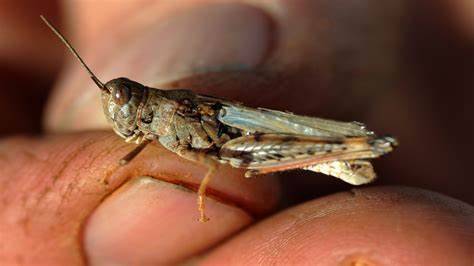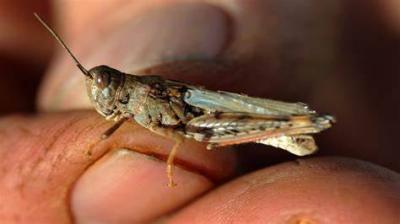Ahmad Rizq, head of the Agricultural Pest Control Authority in Egypt, revealed the reason behind the massive swarms of locusts invading the Egyptian borders in the south of the country, highlighting the seriousness of the situation. He explained that this timing coincides with the breeding season for locusts in Africa, noting that the season has seen an increase due to heavy rainfall occurring earlier than usual.
In a phone interview with journalist Azza Mustafa on the "Salah El-Din" program on Sada El-Balad channel, he pointed out that Sudan is one of the countries where locust swarms are prevalent. Due to a lack of control measures from the authorities, locusts have spread significantly, approaching neighboring borders, especially Egypt.
The head of the Agricultural Pest Control Authority indicated that the Ministry of Agriculture is fully managing the situation, with complete support from all relevant parties to combat this pest. The swarms that entered Egypt have been classified as small quantities.
Rizq continued: "Desert locusts consume any green material they encounter, and the ministry is containing them in mountainous areas, confronting them through established bases across all borders, using locust pesticides and spraying machines."
He further noted, "Locusts breed in Yemen, Saudi Arabia, Sudan, and Eritrea. Due to the ongoing conflicts and the spread of epidemics in Sudan, locust swarms are increasing. I assure citizens that the ministry is continuously working on the situation."
Egyptian media have reported the existence of massive swarms of locusts attacking the border areas in Halayeb, Shalateen, and Abu Ramad, in the south of the Red Sea Governorate. The Egyptian newspaper Al-Dostor documented an attack by swarms of yellow desert locusts, in massive quantities extending over dozens of kilometers, coming from Sudan.
A source for the newspaper revealed that locust swarms breached the Egyptian border from Sudan, in large quantities exceeding dozens of kilometers, distributed across various areas; starting from Abu Ramad and currently entering the Shalateen area, indicating that there have been significant numbers of locusts attacking trees and some mountainous crops.




